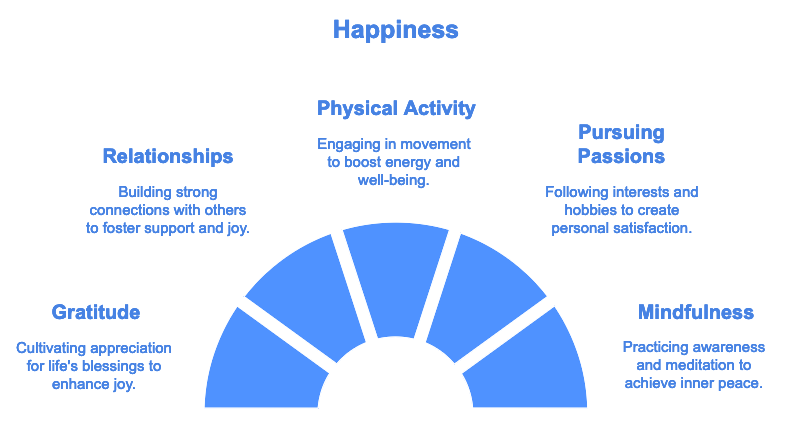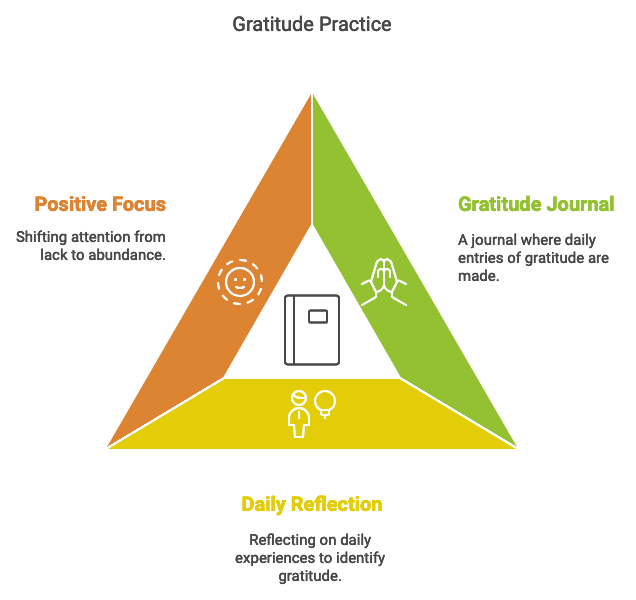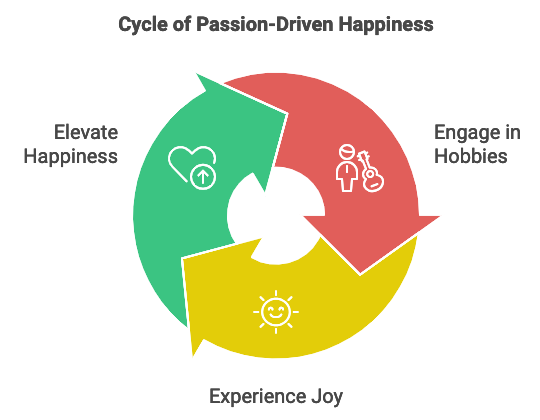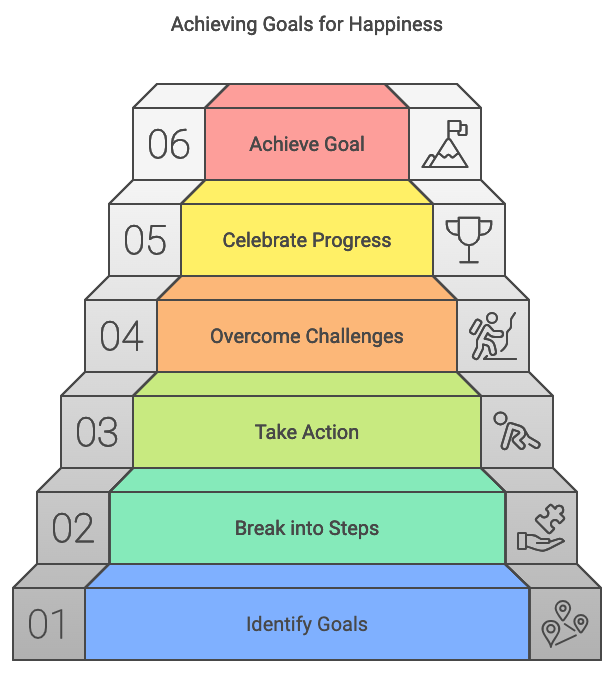How to be happy
We all want to be happy, yet finding it might occasionally seem unattainable. Although everyone’s definition of happiness is different, there are tried-and-true methods that can help you live a happier, more contented life. Learning how to be happy is possible, whether it be through meaningful relationships, positive habits, or mental adjustments. Ten concrete actions you can do to develop long-lasting happiness will be discussed in this post.

Practice Gratitude Daily
Every day, cultivate kindness.
Gratitude is one of the easiest yet most powerful methods to increase happiness. People who often express appreciation are happier and feel more positive feelings, according to studies. By focussing on what you have instead of what you need, gratitude can greatly enhance your perspective on life.
How to Practice Gratitude
- Create a thankfulness diary and list three things each day for which you are thankful.
- Express your gratitude to those who have assisted or encouraged you.
- Before turning in for the night, think back on the good times.

Create a Positive Attitude
Your emotions and behaviour are greatly influenced by your thoughts. A optimistic outlook can enhance your general sense of wellbeing by enabling you to face life’s obstacles head-on with fortitude. Although it’s common to occasionally have negative ideas, you may maintain your optimism by learning to reinterpret them.
Strategies for Creating a Positive Attitude:
- Practice positive self-talk: Challenge negative thoughts by asking yourself if they are based on facts or assumptions.
- Put more emphasis on solutions than problems: When confronted with an issue, focus your efforts on resolving it.
- Spend time with people who inspire and uplift you in order to surround yourself with positive influences.
Nurture Relationships
Happiness is largely dependent on having solid, sustaining relationships. According to studies, those who have close social ties tend to be happier, healthier, and live longer. Taking care of your relationships, whether they be with family, friends, or a romantic partner, can make you happy and emotionally fulfilled.
How to Build Strong Relationships
- Make an effort to strengthen your bonds with those you love and spend quality time with them.
- Listen well and genuinely care about the thoughts, feelings, and experiences of others.
- Show appreciation and affection, both in words and actions, to those who matter to you.

Take Part in Meaningful Activities
Finding purpose in life is a crucial component of happiness. This can originate from your job, interests, or other pursuits that provide you with a feeling of direction. People are more likely to be happy and fulfilled when they are involved in significant activities.
How to Find Meaningful Activities:
- Follow your passions: Take part in things that make you happy, whether it’s writing, music, painting, or sports.
- Volunteer for a cause: Giving back to the community and helping others can give you a feeling of purpose.
- Set personal goals: Having goals gives you something to strive for and can lead to a sense of accomplishment.
Take Care of Your Physical Health
Mental and emotional well-being are intimately related to physical health. A healthy diet, regular exercise, and enough sleep can all greatly enhance your mood and vitality. According to research, those who put their physical health first report feeling happier and more content with their lives.
Tips for Physical Well-being:
- Exercise regularly: Aim for at least 30 minutes of physical activity each day. This could be walking, running, yoga, or strength training.
- Eat a healthy diet: Focus on whole foods like fruits, vegetables, lean proteins, and whole grains to fuel your body.
- Get enough sleep: Most adults need 7-9 hours of sleep per night for optimal health and mood.
Practice Mindfulness and Meditation
Being completely present in the moment without passing judgement is a component of mindfulness. You may lower stress, sharpen your focus, and feel happier all around by engaging in mindfulness exercises. One of the most effective methods for developing inner calm and mindfulness is meditation.
- Begin with basic breathing techniques; concentrate on your breath to help you focus on the here and now.
- Engage in mindfulness meditation for at least 10 minutes a day to reduce anxiety and promote a sense of calm.
- Engage in mindful eating or walking by focussing on your environment and feelings.
Give up trying to be perfect
Happiness can be seriously hampered by perfectionism. A common result of striving for unachievable standards is tension and disappointment. You can accept your flaws and celebrate your accomplishments without needless pressure if you can learn to let go of your perfectionism.
How to Overcome Perfectionism:
- Prioritise progress over perfection and set reasonable expectations and goals for yourself.
- Celebrate your accomplishments, even the small ones.
- Learn to accept mistakes as part of the growth process.
Make self-care a priority.
To be happy, you must take time for yourself. Self-care entails taking care of your physical, mental, and emotional well-being by doing things that revitalise and bring your life back into balance.
Self-Care Tips:
- Make time for leisure activities, such as reading, bathing, or engaging in a hobby.
- Create a work-life balance by setting boundaries and taking breaks when needed.
- Practice self-compassion—be kind to yourself, especially during difficult times.
Manage Stress Effectively
Although stress is inevitable in life, you may significantly increase your pleasure by learning how to efficiently manage it. It’s critical to establish good coping strategies because long-term stress can negatively impact both your mental and physical well-being.
Techniques for Stress Management:
- Practice deep breathing or progressive muscle relaxation to calm your body and mind.
- Prioritize tasks and break them into smaller, manageable steps to avoid feeling overwhelmed
- Engage in regular physical activity to reduce tension and release endorphins.
Live in accordance with your principles.
Living a life that is consistent with your values and beliefs is frequently associated with happiness. You’re more likely to feel happy and fulfilled when your behaviour reflects your priorities.
- Find your guiding principles and feeling of purpose by identifying your essential values.
- Make choices that reflect those values, whether in your career, relationships, or daily life.
- Stay true to yourself, even if it means making difficult decisions or stepping outside your comfort zone.

Conclusion
Achieving Lasting Happiness
Happiness is a journey that requires deliberate work, self-awareness, and constructive habits rather than a destination. You can develop a lasting feeling of happiness by cultivating meaningful relationships, practicing appreciation, and taking care of your physical and mental well-being. Keep in mind that everyone’s definition of happiness is unique; what important is figuring out what makes you happy and adding more joy to your life every day.
As you apply these suggestions to your everyday activities, you’ll notice an increase in your sense of contentment and satisfaction. You may live a life full of positivity, meaning, and genuine happiness with patience and perseverance.
